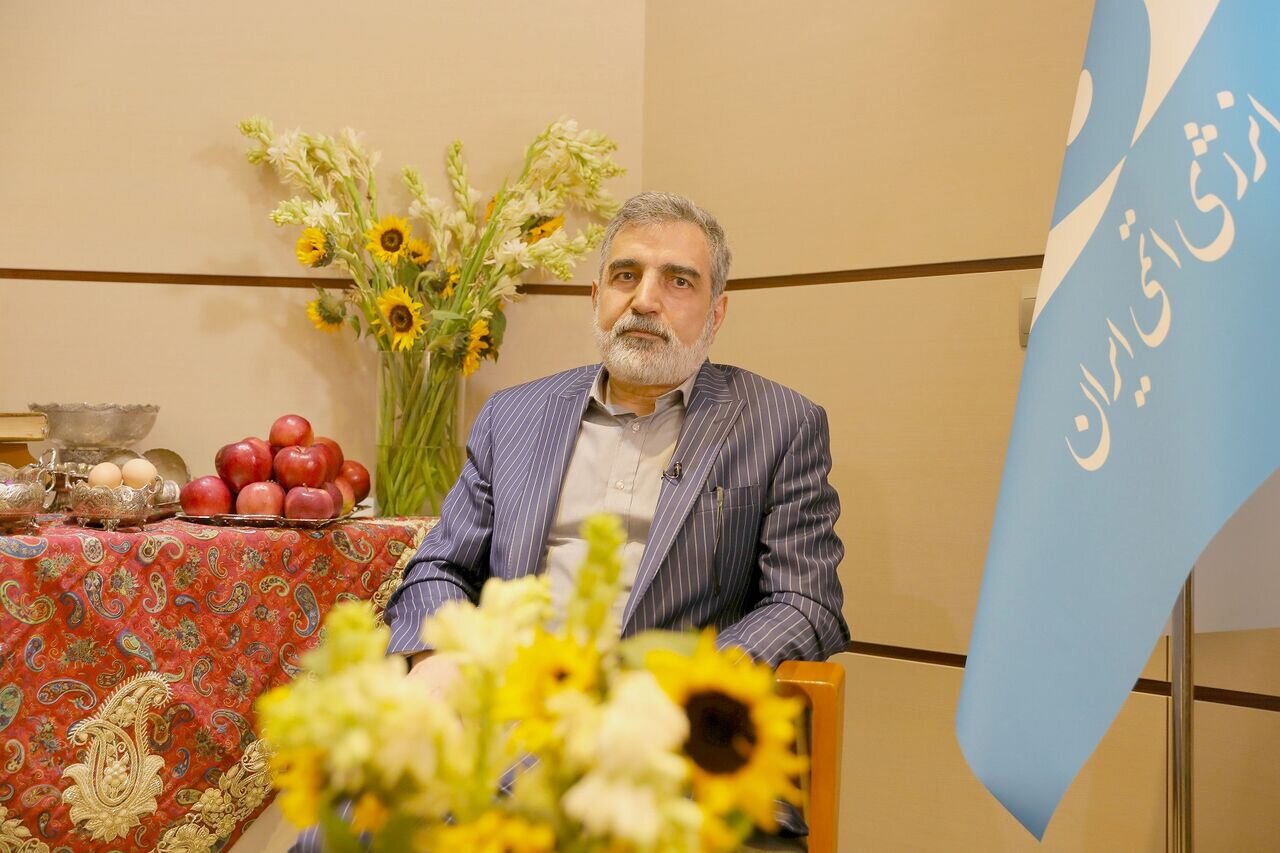Nuclear technology has promoted Iran’s political status in the world: Kamalvandi

TEHRAN - Nuclear energy has a significant impact on various sectors of the Iranian society and elevated Iran’s political status in the world, a top Iranian nuclear official says.
Behrouz Kamalvandi, the spokesman for the Atomic Energy Organization of Iran (AEOI), says it is because of the paramount importance of nuclear industry that “we are now witnessing multiple problems that have been created” by the West for Iran, IRNA reported on Friday.
In their efforts to weaken Iran, Kamalvandi says, the enemies have been seeking to create “obstacles” in the path of the country’s nuclear industry.
Citing an example of nuclear technology in health sector, the official said now over a million patients in Iran are receiving radiopharmaceuticals.
Radiopharmaceuticals are drugs that contain, among other ingredients, radioactive forms of chemical elements called radioisotopes.
Depending on the type of radiation that those radioisotopes produce, they can be used to diagnose or treat several medical conditions.
Their applications range from imaging of many different organs, such as brain, heart, kidney and bone, to the treatment of cancer and hyperthyroidism.
Kamalvandi, who is also in charge of the AEOI department for international and legal affairs, went on to say that Iran would have now faced difficulty to import nuclear medicine if it had not mastered nuclear technology.
The nuclear official said Iran is now exporting radiopharmaceuticals to other countries as well.
Due to sanctions Iran was never allowed to import nuclear materials for producing radiopharmaceuticals, he pointed out.
“Therefore, if we had not had internal capabilities in this regard, the country would have faced many challenges in healthcare.”
For example, he said, despite claims that food and medicine are not subject to Western sanctions, “the reality is that we have seen the effects of sanctions on” these two items.
Elsewhere in his remarks, Kamalvandi said, “Sanctions have become a strength for the country and the nuclear industry. Under these conditions, we have strived to stand on our own feet and have now become not only capable of meeting the country's needs but also exporter of various radiopharmaceuticals.”
He also pointed to the importance of radiation technology on preserving and improving agricultural products, saying due to sanctions, industrial accelerators were not sold to Iran.
However, Kamalvandi said, Iran is now able to produce these accelerators at a lower cost than global rates and with higher quality.
Quoting Leader of the Islamic Revolution Ayatollah Ali Khamenei, he said, “As mentioned by the Supreme Leader of the Revolution, this industry is a source of honor for the country and contributes to its power. If someone loves Iran and wants it to be strong regardless of their beliefs, they should support this industry. Besides its effects on people's lives, this industry also brings power and honor to the country politically.”
He said countries that have mastered nuclear technology have a special status in the world.
For this reason, Kamalvadni stated, the West does not want Iran to fully master this industry.
“The current political problems stem from this issue, and part of our work in the international department is to remove the political and legal obstacles created by them (the West).”
